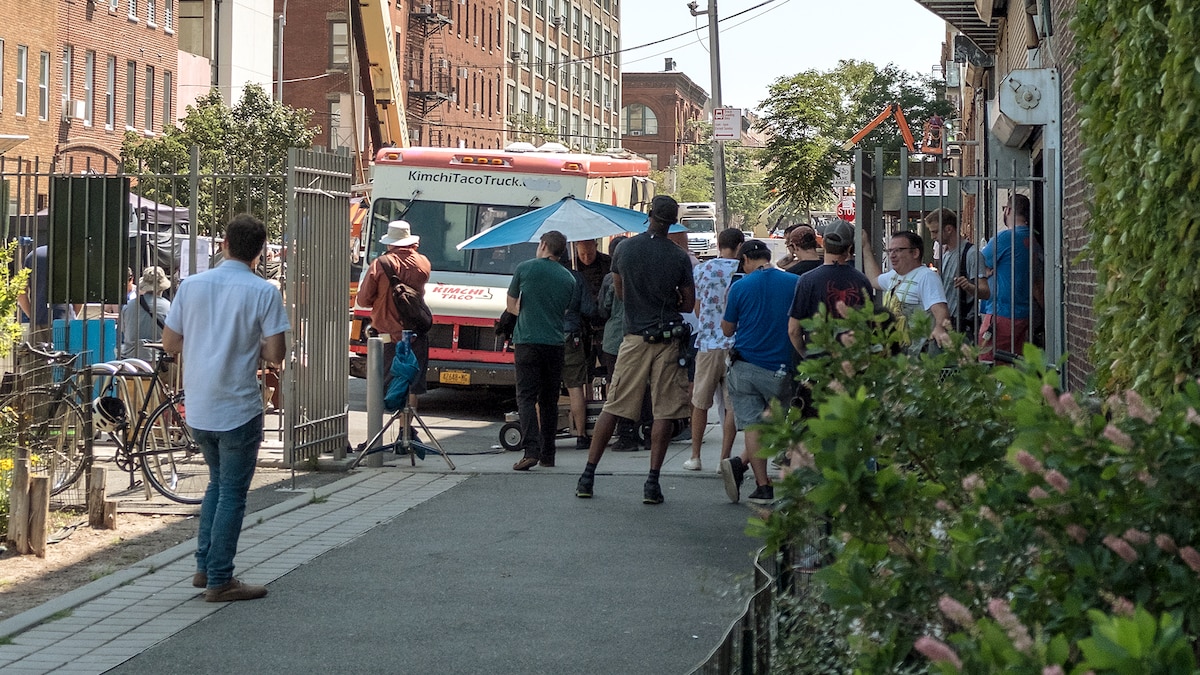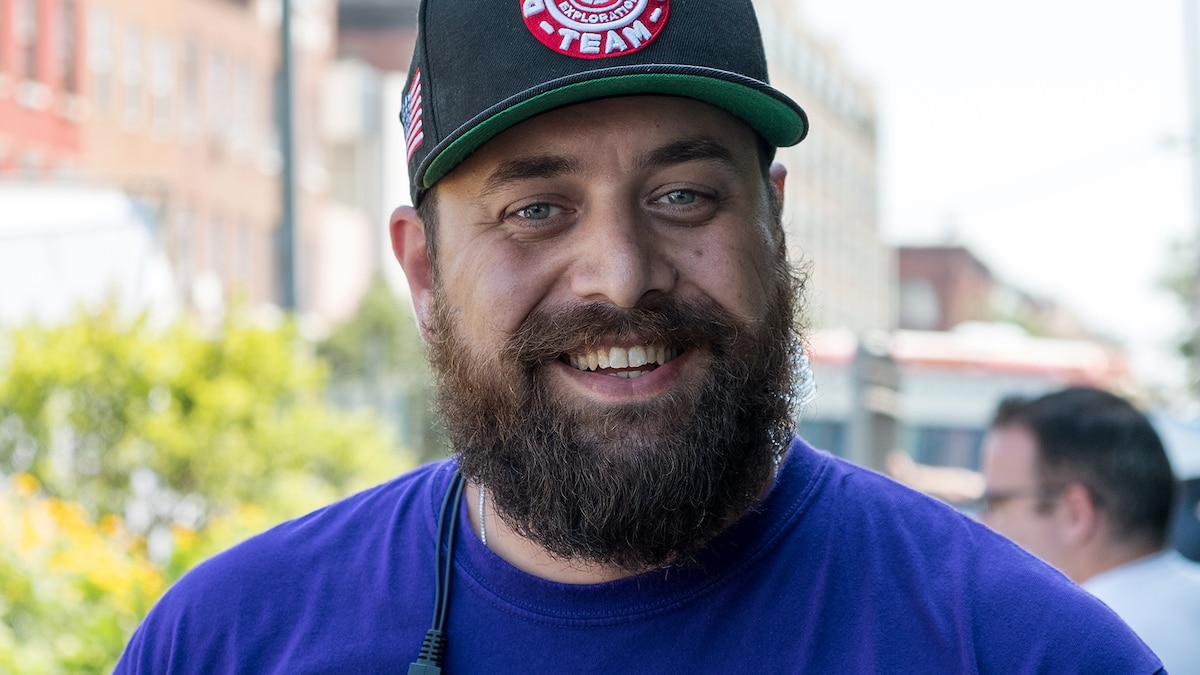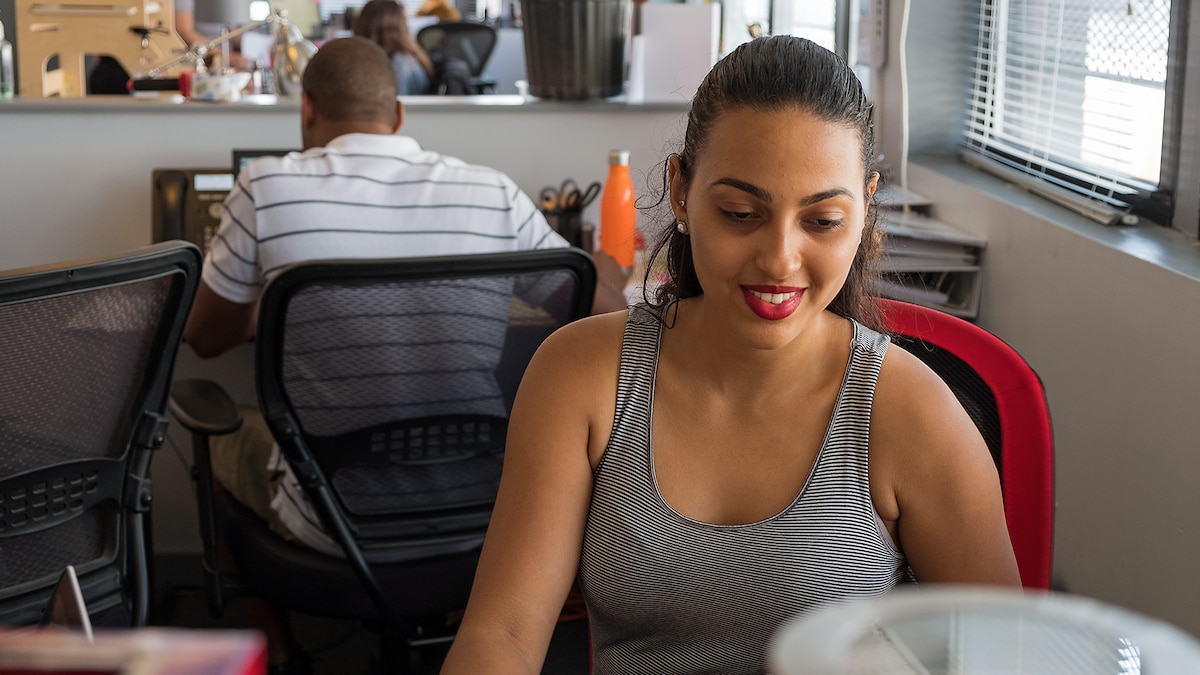Production assistants, aka “PAs,” are responsible for keeping sets running smoothly: standing guard on street corners to ensure no one accidentally wanders into frame; coordinating scripts, schedules and catering orders; running last-minute errands that could make or break a day of shooting. On the Season 2 set of Crashing, three production assistants — Kenneth “Kenny” Carter, Thomas Springsteen and Ashley Jovine — discussed their experiences as part of the HBO & Cinemax Community Impact Program, which placed them on the set of the Pete Holmes/Judd Apatow comedy.
The training program took seed when Jay Roewe, Senior Vice President of Production at HBO, and Dennis Williams, SVP of Corporate Affairs and Corporate Social Responsibility (CSR) brainstormed ways to be better corporate citizens while maintaining creativity. Roewe says the Louisiana-based set of Treme was their first opportunity to turn those conversations into action.

“On the heels of Hurricane Katrina in New Orleans — where there’s been large growth in the film business,” he explained, we consulted with Darcy McKinnon, who expanded a community-based film training program at the organization NOVAC: New Orleans Video Access Center.” The Louisiana-based non-profit provides media training and production resources in the New Orleans and Baton Rouge areas to help those without connections in entertainment gain a foothold in the business. Roewe collaborated with Williams and Pam Hacker, HBO’s Director of Corporate Social Responsibility, to “replicate what McKinnon had done so successfully in New Orleans on every HBO production across the U.S.” This partnership empowered Williams and Hacker to start the HBO & Cinemax Community Impact Program, with the added goal of expanding diversity to sets as part of this PA training program.
Other like-minded non-profit programs, including Veterans in Media and Entertainment (VME) in New York and Los Angeles, and Ghetto Film School, located in the Bronx and L.A., also came onboard. The three programs, each with their own distinct missions to help underserved communities break into entertainment, serve as liaisons between applicants and networks like HBO to place prospective crews and actors onto sets.
“The best productions happen when you have people who bring a range of talents and diverse perspectives,” noted Roewe. “Diversity enriches the project as it becomes more reflective of the people involved.”
Abe Bradshaw, Director of Internships, Mentorships and Job Placements at VME concurs, “Every time I go to a meeting, I’m in awe at the different ethnicities, political views and thoughts,” he said. “It’s inspiring and exciting to see everyone creating such unbelievable art.” VME helped place U.S. Navy vet Kenny Carter and Army veteran Thomas Springsteen on the Crashing set.
“I was on Facebook and there was post from VME about the training program,” explains Carter, who works as an office PA on Crashing. “I applied and got a response about an interview within 24 hours.” Carter, who served as a Naval Hospital Corpsman, says he got into filmmaking accidentally, by keeping video recordings of his time from training through deployment.

Film school became a priority upon Carter’s return home. After that, he spent time on the sets of Saturday Night Live and Crashing. “There’s plenty to learn on set, but I want to take my career in the direction of the logistics of production and Crashing gives me that opportunity.” Carter enjoys helping coordinate what happens in the production office, including scheduling and ordering supplies and catering.
Springsteen, a U.S. Army veteran and on-set PA, compared the experience to his time in the service: “I was really surprised at the similarities between set and the military. Every cog is important and if one cog breaks, the whole thing fails. And it all runs on food!”

Springsteen, who loves working outside the office, also got the job through VME. “The networking opportunities offer so much. I sent VME my resume, which was passed to NOVAC. NOVAC called me for an interview and passed my info to Rocco Dimase, who interviewed me and hired me the next day.”
Dimase, a production coordinator on Crashing, has worked closely with the HBO & Cinemax Community Impact Program in the two years since its establishment. “I never had anything like this,” he marvels. “This is a great introductory way for veterans and recent graduates to network. It’s an entertainment family.”
A recent college graduate on the Crashing set is Ashley Jovine, who was introduced to the training program through Ghetto Film School. The Bronx-based nonprofit, set in one of the world’s largest melting pots, believes diversity and great storytelling are synonymous. “It’s no longer about doing the right thing from a social perspective,” says Kisha Imani Cameron, its Chief Operating Officer. “Diversity is good business. It makes scripts better. It makes projects better.”

Jovine, an aspiring writer, couldn’t believe her luck when she got placed on Crashing. “The training program gave me the opportunity to sit in the writers’ room on my very first day. I was nervous,” she admits, “but I got the chance to see how writers interact.”
With production wrapped what’s next for these PAs in training? For Jovine, who loves working in the office, it’s about looking for similar opportunities and focusing on her own projects. “My dream is to be a screenwriter,” she says. “Before I started the program, I was working on a feature screenplay and after working on Crashing, I realized I want to stretch it to a series.”
Carter is eager to delve further into the office logistics: “That’s where I want to be.” He also offers advice to those looking to jumpstart their careers in TV. “Social media is key. Once you get on one set, you’re good.”
Springsteen, who wants to learn more about on-set operations, doesn’t take this opportunity lightly. “I’d also love to give back and teach young people how to do this. That’s how you field the next generation.”

